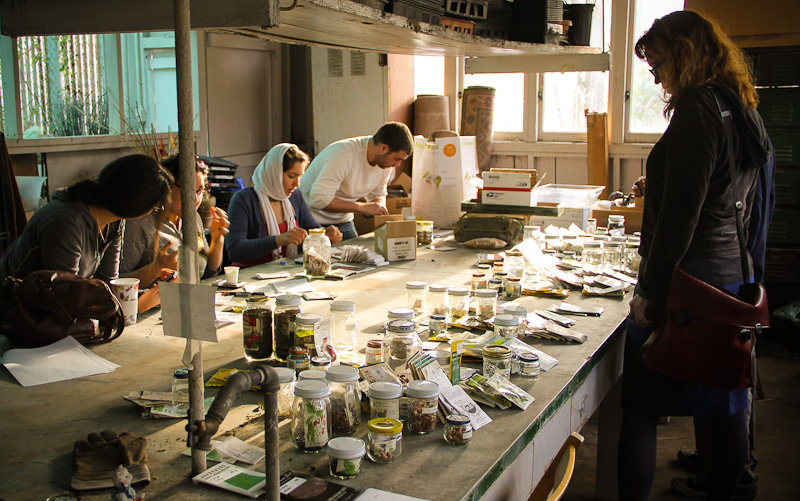 After the Pennsylvania Department of Agriculture cracked down on a community seed library, hundreds of seed libraries in the U.S. are suddenly wondering if they are breaking the law. According to PA regulators, in order to give out member-donated seeds, the Simpson Seed Library in Cumberland County would have to put around 400 seeds of each variety through prohibitively impractical seed testing procedures in order to determine quality, rate of germinability, and so on. The result of the PA crackdown is that the library can no longer give out seeds other than those which are commercially packaged.
After the Pennsylvania Department of Agriculture cracked down on a community seed library, hundreds of seed libraries in the U.S. are suddenly wondering if they are breaking the law. According to PA regulators, in order to give out member-donated seeds, the Simpson Seed Library in Cumberland County would have to put around 400 seeds of each variety through prohibitively impractical seed testing procedures in order to determine quality, rate of germinability, and so on. The result of the PA crackdown is that the library can no longer give out seeds other than those which are commercially packaged.
Quite ironically, this is in the name of “protecting and maintaining the food sources of America.” In this news article that went viral, regulators cited, among other things, that “agri-terrorism is a very, very real scenario.” In reality, seed libraries have emerged in an effort to protect our food sources and to ensure access to locally adapted and heirloom varieties. The public’s access to seeds has been narrowing ever since 1980, when the Supreme Court ruled that a life-form could be patented. Since then, large seed companies have shifted away from open-pollinated seeds to patented hybridized and genetically-engineered varieties. The companies generally prohibit farmers from saving and replanting the seeds, requiring that farmers buy new seed each year. In response to this trend, seed libraries give members free seeds and request that members later harvest seed and give back to the library in the future, thereby growing the pool of seeds available to everyone.
Seed Law Basics
It’s important to set the record straight about the legalities of seed libraries. Let’s begin with the basics: In every state, there are laws requiring seed companies to be licensed, test seeds, and properly label them. At the federal level, there is a comparable law governing seed companies that sell seeds in interstate commerce. All of these laws exist for good reason: If a tomato grower buys 10,000 tomato seeds, the grower’s livelihood is on the line if the seeds turn out to be of poor quality or the wrong variety. Seed laws, like other truth-in-labeling laws, keep seed companies accountable, prevent unfair competition in the seed industry, and protect farmers whose livelihoods depend on access to quality seeds. The testing and labeling of the seeds also helps to prevent noxious weeds and invasive species from getting into the mix.
In some states, the licensing, labeling, and testing laws only apply if you sell seed. In other states, such as California, the laws apply if you even offer seeds forbarter, exchange, or trade. How do you define words like sell, barter, exchange, and trade? And how do they apply to seed libraries? Read on if you are ready to venture into interesting legal grey areas.
In at least one state (yup, Pennsylvania), even supplying seeds make you subject to at least some regulation. But the Pennsylvania seed law is about to be put to the test, and we think that regulators should have read their law more carefully.
Read more: http://www.resilience.org/stories/2014-08-12/just-how-legal-are-seed-libraries























